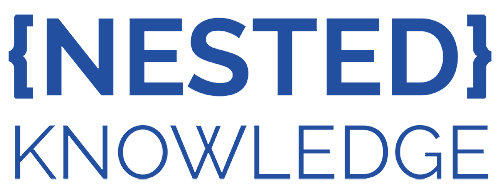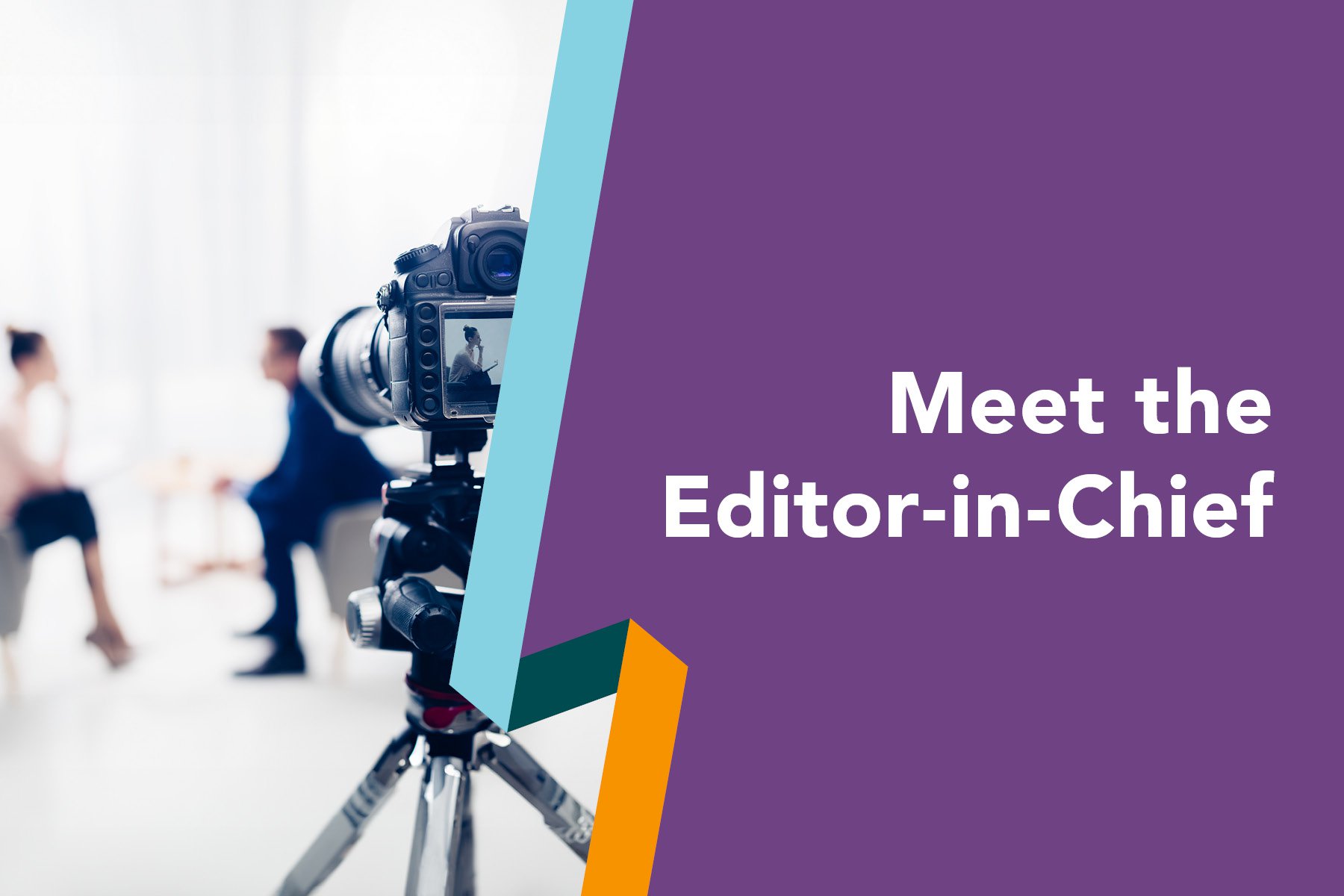Keith and Kevin Kallmes, brothers and founders of Nested Knowledge, gave us an exclusive interview about winning the VIA Award, their start-up, and their groundbreaking invention.
On December 7, 2021, the Vesalius Innovation Award was presented for the second time. During STM-Week, the start-up Nested Knowledge was selected as the winner by the 12-member jury (read the official media release of Karger Publishers).

Congratulations on winning the Vesalius Innovation Award 2021, Keith and Kevin! What were your first thoughts when you heard that Nested Knowledge was chosen as the winner by the jury?
We were happily surprised, there were really strong technologies competing here! For instance, we were impressed with the usefulness of CiteAb’s biomedical search site, and they have 70,000 R&D monthly users. Selecting Nested Knowledge has to mean that the jurors are scientific researchers themselves, because our ideas usually land best with people who have been hands-on doing medical reviews and wondered, the whole time, why they were typing numbers from a PDF into Excel.
A classic question at this point, but still we have to ask you: What does the award mean to you and Nested Knowledge?
This award means validation in the most important industry to Nested Knowledge – publishing. We have found most publishers to be attached to their current paradigm, where reviews are just PDFs, and it’s been difficult to find publishers who think about what reviews could become with just a little bit of technological advance: updatable, interactive databases with built-in analytics. To us, the award is part of Karger’s communication to us and to the public that Karger is innovation-friendly and willing to rethink the paradigm of evidence management. So, really, the award is just the beginning for us – the real victory here is starting a concrete conversation about how we can make that technological shift happen.
Without going into too much detail, can you briefly describe what Nested Knowledge offers?
Nested Knowledge is a software where you can build systematic reviews and meta-analytical databases.
You can go to our site instead, tell us what disease you are interested in, and also the therapies you want to compare. We help you find studies, filter to the ones you care about, and extract data — and along the way, we have you build a structured concept hierarchy of the study designs and outcomes you collect. Then, we generate your visuals automatically, including automating a lot of the basic statistics, and we make this whole process updatable. Nested Knowledge is the workflow to fill a review database, and then also a better way to show off the data once you gather it.
Why do you think the way systematic reviews have been done so far needs to be changed?
In short, because no one wants to build their own custom Excel sheet, and no one was taking responsibility for merging all those custom spreadsheets. Basically, the standard practice for reviews to date has been: you (a resident, a med student, a postdoc, a medical researcher, a biostatistician) craft your own PubMed search strategy, then track yourself as you select articles, build the extraction methods yourself, build the visuals yourself, and then write up your findings – and set aside the review forever. There is some software that helps with parts of the process, but before us, you couldn’t go from search strategy to updatable visual outputs in one piece of software.
To us, the whole approach to evidence synthesis needs to be built on better foundations. If reviews don’t use the same methods, you can’t have replicable overall findings. If review data aren’t collected into a structured database, they can’t be compared or combined. If reviews aren’t updatable, you can’t keep up with new studies or new scientific consensus. Reviews of the future will be completed in a software workflow where you structure your knowledge and that of your peers in such a way it can be built upon and reused. These future reviews better come soon, because the current methods are so work-intensive that, even though reviews comprise the highest level of scientific evidence, only 10-17% of studies are covered by an up-to-date review. That needs to change.
How can publishers, journals and researchers benefit from your technology?
- Researchers can leverage AutoLit, our collaborative cloud-based review software. The best results happen when researchers reach out to other researchers in the Nested Knowledge community, to trade tips but also to work together remotely. The next time you have a medical question to answer systematically, check out our site, get your postdoc friends involved, or ask us if we can help — we love interesting research ideas, and Kevin has a tendency to jump in and help with study design.
- Journals and societies should ask themselves, “is there a topic we want to own?” This is because an updatable review gives two advantages: it never gets superseded, and it gives you the exact findings that should support guideline development. In effect, I think we can help journals and societies take up the responsibility (and the honor) of maintaining the dataset that underlies updatable guidelines, and they can also show their readers that they are the go-to source for all the disease states they have datasets for.
- Publishers should think about Nested Knowledge in two ways: as a bridge from search engines to publications, and as a new presentation media. So, any publisher that wants to be the platform researchers use to store the data they are gathering toward new reviews should try AutoLit to see how we turn reviews into a process to create an environment for evidence synthesis. Then, any publisher that wants to explore new ways for readers to find and filter articles in a new, visual way should try out Synthesis to see how we help readers get the scientific consensus and drill down on any details of interest.
You are not only entrepreneurs, but also scientists. As young scientists, what changes would you hope for or even expect from science publishing in the future?
We encountered this problem based on our early scientific research, when we thought that we were doing unscientific things when we were collecting evidence. So, we started out by thinking, “How can we catch up with the actual scientific practices that the best researchers use?” Like, how can we be more replicable in our collection, unbiased in our analysis, and informative in our presentation?
It didn’t take long before we realized that was the wrong question — because we had assumed that publishing was further along in technological methods for managing data. Honestly, this might sound harsh, but it’s true: publishing is stuck in the age of paper. Scientists have to read reviews in static PDFs – which might as well be paper journals. So, now we ask ourselves, “How can we help scientific practices catch up with technologies?”. We hope that publishing in the future is presented in more interactive ways, but most of all we hope to help publishing build up that infrastructure, and that process, for collecting, storing, and comparing data in a way that reflects the scientific practices that we all learned about in science class.
What are your plans for the near future of Nested Knowledge?
Our biggest focus right now is on rolling out living reviews and guidelines with journals. We are still adding on new features – we just pushed our Risk of Bias tool, which was a really common and important request – but we are most interested in getting over that last hurdle of publishing findings from Nested Knowledge directly in journals. We’ve had some early success with tech-friendly journal editors, and we are excited to generalize that across different disease states, and get feedback on the process of turning these living reviews into living-reviews-and-guidelines.
We are also still growing our community of direct academic users. We started out with collaborations that focused around specific diseases (like COVID-19), and that has really helped us figure out the best way to onboard scientific researchers. Basically, our software is much better for helping with remote reviews, so students looking for a mentor or senior researchers looking for on-the-ground research help, reach out so we can help you connect with other researchers passionate about the same topics!
Nested Knowledge is already your third startup since 2015. Where does this desire to found come from?
Frustration with the existing paradigm is a great motivator. Every idea starts with noticing an unmet need, talking to a lot of people with similar needs to hone it and figure out what is most important, and trying it out enough to know it’s not impossible. We have found three really bothersome, meaningful problems, we think we can help, and we just really enjoy building things that make researchers’ lives easier.
For Nested Knowledge, we were uniquely positioned to notice the pain point, since we sat on both sides of the table: in our first company, we provided literature reviews to device companies. In our second company, we literally designed and commercialized devices, so we were using reviews from the start in our clinical department, our regulatory, even our business development. We thought that it was a super compelling bridge, from people who collect data to people who use it, and that’s pretty motivating when you’ve been in their shoes.
After Magma Learning , you are the second startup to win the VIA. What did you particularly like about the award process with Karger?
From the very beginning, Karger took a “collaborative partnership” approach to the entire process, from coaching me on the judging criteria to introductions within their team and among the jury. Every interaction started with “how can I help?” and ended with actionable takeaways, which is rare in our Zoom/Teams-filled world.
In your opinion, what distinguishes the VIA from other start-up awards?
The focus on innovation in publishing within health sciences really helps to narrow the focus of the award. It’s a great space to be in right now, with lots of healthy competition, which inevitably leads to better solutions for all. In particular, we were pleased to see emphasis placed on the intersection between technology and design. True to its namesake, the Vesalius award rewards companies who are pushing the boundaries of what is possible in publishing, without sacrificing visual design and usability.
Finally, would you like to share a “secret recipe” of your success with founders in the health sciences?
Get a small team of vision-aligned, trustworthy talents, define your problem really carefully, and keep persisting until someone pays you for solving it. None of that is secret but we often feel like it is forgotten.
Thank you for the interview and congratulations again!
Thanks so much, it’s a real honor and I can’t tell you how ecstatic the whole team was after hearing about it.
About the Winners
Kevin Kallmes, CEO, Nested Knowledge
Kevin is a serial entrepreneur with a focus on medical research methods. After founding and growing a medical writing company to 20 researchers, he led a medical device company through R&D, FDA clearance, commercialization, and acquisition by a major strategic device company.
Kevin’s dual research and medical device backgrounds gave him insights into the major shortcomings in systematic review software and led him to founding Nested Knowledge, where he manages product and the research team. He holds a JD from Duke Law.
Keith Kallmes, President, Nested Knowledge
After founding a medical writing and research firm in college, Keith managed a medical device company through commercial launch and acquisition by a leading strategic device company. At Nested Knowledge, Keith oversees business development, sales, and strategic partnerships. In his free time, Keith enjoys hiking, skiing, sports, economics, and history.
If you would like to share your innovative ideas with us, like this year’s winner of the Vesalius Innovation Award, or generally find out more about the VIA, you can reach us at https://www.karger.com/via or directly by e-mail at via@karger.com.
To learn more about Nested Knowledge’s services, visit their website www.nested-knowledge.com or write to Keith directly at keith.kallmes@nested-knowledge.com.





Comments
Share your opinion with us and leave a comment below!